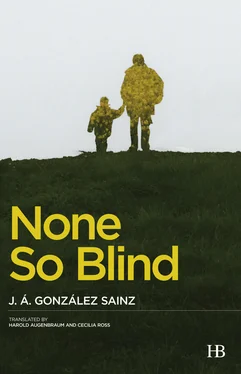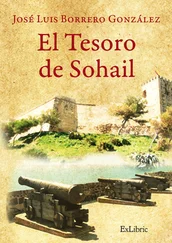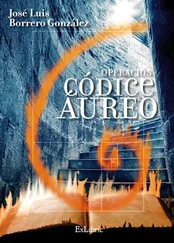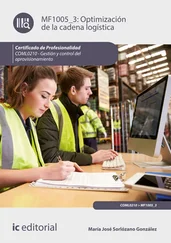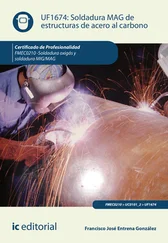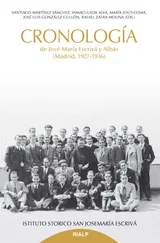Obsessed by the text itself, he hadn’t even looked at the photographs yet, either the one of the murdered Law professor, the illustrious jurist, the caption said, champion of freedoms and democratic rationality, or the other one, of his son, handcuffed and being escorted by two agents, sporting a two-day shadow of a beard, a short jacket he didn’t recognize, two sneakers — like always, sticking out from a pair of jeans — and, most especially, smiling, haughty, with that sarcastic smile of defiant petulance that he knew came not so much from a feeling of resolve or contempt as, more than anything else, disgust, rancor, and an air of bitter repugnance that was as incomprehensible as it was grotesque.
Without being aware of what he was doing, so mechanically, so cut off from his own self that he almost had the impression it was someone else doing it, he put a fistful of salt into the water, which had been boiling in the pot now for an amount of time he was unable to judge, and he began steadily, almost, you might say, in slow-motion, putting in the beans, the carrots and potatoes, the onion, and the block of lamb shoulder. Then, with the same slowness and the same mechanical, abstracted manner, he went about throwing the leavings into the trash, almost, you might also say, not so much like someone who is throwing things out and disposing of them but instead like someone holding onto something, like someone keeping something, setting it aside. But he didn’t throw them away inside the cone of paper he usually made, instead he picked them up them with his hands, he held them unhurriedly in his hands and felt deep within himself the strange pleasure of getting them dirty, grimy, he might have put it, with the peels and the scrapings, as if only through contact with something material, something dirty and disposable, terminal, could he find not consolation or support but at the very least something to be near to. Then he opened the door to the patio, walked over to the old cherry tree his father had planted, and put his arms around the trunk, letting himself drop to the ground.
With his face pressed against the trunk, pressed so close and hard against it that it would not have been easy, given the amount of light at that hour, to say where one began and the other ended, where the skin of one ended and the sheath of the other began, he slid slowly downward, scraping his cheek as though he wanted the bits of the bark that broke off when he did so, or the sap the old trunk secreted, to stick to it, and also, most likely, so that the bark, too, could become impregnated with the blood of the scratches and scrapes it produced.
And this is the state — collapsed on the ground across the roots of the cherry tree, which had begun to lose its leaves, holding on to it in a position that seemed as compressed as it could possibly be — in which his younger son found him a short time later. He picked him up — come on, Dad, get up, let’s not have this get the better of you, too — and once he was on his feet, he shook the leaves and stems from his wool sweater and wiped off his face with his handkerchief. He allowed himself to be taken in hand, he was like a dead weight and at the same time seemingly as light as a feather, and his son tried to lead him by the arm to the kitchen. I’m coming, I’m coming, don’t worry, he said to him, and he refused to lean on him.
In the same mechanical, empty way he had been doing everything, he turned off the stove, removed the lid, put the plates on the table, and served the food, before finally sitting down in his chair as though he were a man at least twenty years older than the one who had just a scant few minutes ago sat in the very same chair.
17
They ate in silence, deliberately rather than slowly, bringing the food to their mouths with a strange feeling of self-awareness, spacing out their mouthfuls not so much as if it took a great deal of effort to chew but as if chewing, having something between their teeth and in their mouths, were the only way they could truly feel that they were where they were. But when they each finished their last bite, as if that were the signal to end a truce, they instantly fell to speaking, clumsily, confusedly, skirting the issue at first and almost as if reluctantly trying to trick themselves and one another by beating around the bush and dodging the question at hand, until gradually they were able to clear the way and begin navigating the obstacles and come to the point. None of this is your fault, his son said to him at last, none of this is your fault.
“Some of it must be,” he immediately replied.“There must be something I didn’t know how to do, or I didn’t know how to say, perhaps, in the way it needed to be said or at the moment it needed to be said. There must be something, Felipe, there must be something. These things don’t happen for no reason, and I’m his father.”
His son explained what he knew as far as he could, what he had suspected at first and then known and later confirmed again and again through details and ever more details and from more than one person. Do you remember that day I came home from school bleeding, he said to him, because I’d gotten really good and beaten up? The fascist little brother, they called me, the asshole little brother. Every day, they wrote Felipe Díaz on the blackboard inside a bull’s-eye, and there were even some teachers who left it up there and wouldn’t erase it for the entire class.
Without budging, without uttering a word or making a single peep, his father listened with the full and complete attention of someone who, more than listening, is in fact seeing what is being told. But at a certain point, at a point that must have coincided with the mention of a bull’s-eye, inside a bull’s-eye, he began to repeat over the top of his son’s words, as if they were a counterpoint to them, the exact sentences from the newspaper he had just read, again and again. The perpetrator, the perpetrator of the assassination, he repeated more than anything else, he was the perpetrator of the assassination, and he said it as if he were not only saying the words but putting himself inside them in order to have been within what they were saying, as if he had immersed himself in their language to such an extent and become one with them to such a point that he could have actually been in the place where the events unfolded and even been, himself, what was done.
He must have been waiting there — he said suddenly with a look in his eyes that seemed to have no need to look in order to see everything — in the bathrooms or the hallway, just as he must have waited there before, on other days, blending in and hiding himself in the chaos of students, and he must have seen that day, like the others, that after a certain time there were fewer and fewer people left in most of the offices, and especially in the hallways, but that the professor nevertheless, like every other day, went on working all the same in his office, night already fallen, the building finally quiet, the hum, now only of the city, on the other side of the glass, all alone, as usual, in the silent light of his lamp, until the time the building would close. And when a long time had gone by without him seeing anyone, without anyone coming to his office to consult with him or talk to him about anything, and the humming of the fluorescent lights in the hall was the only sound you could hear, unless his own heart was beating, which I doubt, then it was he who approached the half-open door, who rapped on the door; knock-knock, knock-knock , the poor man inside would hear, and he would say come in, please come in, have a seat, don’t just stand there, mostly likely without yet raising his eyes from the work he was doing — one more paragraph, one more sentence, one word to try to understand something more about the world, to try to make some order out of it. But once he felt the presence, standing in front him, of the person he’d invited in, his figure only barely lit by the desk lamp shining its light onto the open books and the loose pages he was writing on, he would raise his eyes fully and then he would see, with a shock more chilling than anything he would have ever felt in his entire life, the outline of the individual and the shadow of the pistol that were taking him at that exact moment to the next life, the flash of the gunshots, two to the chest and another, with him now slumped over his writings, to the back of the neck — two to the chest and another, with him now slumped over, to the back of the neck, he repeated — and the shadow of the eyes of that person who was my son and had decided, he or whoever it was, like a God, and at the same time like the most imbecile of fools, to take him from this world forever.
Читать дальше
